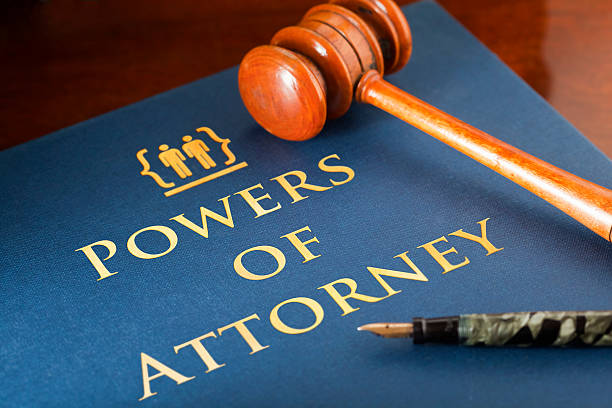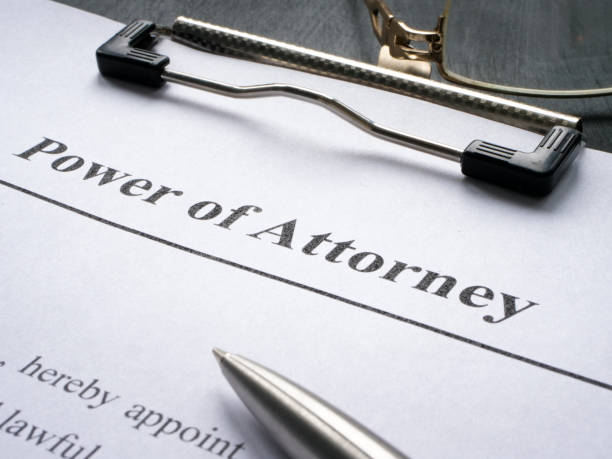A power of attorney is a potent legal instrument that grants one individual—the agent—the authority to act on behalf of another—the principal—in various financial, legal, and health-related matters. It is a cornerstone of many personal and business planning strategies, providing peace of mind and continuity in the face of uncertainty. However, a power of attorney is not irrevocable or unassailable. Circumstances may arise where its authority needs to be challenged or overridden. But who possesses the power to do this, and under what conditions?
In this comprehensive article, “Who Can Override a Power of Attorney,” we delve into the legal intricacies that govern the power of attorney. Our exploration is backed by legal expertise and an in-depth understanding of the conditions under which the powers granted by this document can be contested or revoked.
This piece is designed to unravel the complexities surrounding the power of attorney, providing clarity to those who may be facing difficult decisions about challenging an agent’s authority. We address the common misconceptions and provide a guide to the legal pathways available to those who need to override a power of attorney for reasons ranging from a breach of duty to the principal’s best interests.
The value of this article lies in its potential to empower readers with knowledge, equipping them with the tools they need to navigate these challenging scenarios. Whether you’re a concerned family member, a legal professional, or someone planning their estate, understanding who can override a power of attorney is an essential aspect of safeguarding one’s interests.
As you embark on reading this article, prepare to engage with a topic that is as nuanced as it is critical. We aim to pique your curiosity with real-world examples, expert insights, and a thorough breakdown of the legal processes involved. After all, it’s not just about knowing who can override a power of attorney, but also how and when such actions are appropriate and necessary.
Contents
What Is Power of Attorney?

A power of attorney (POA) is a legal document that allows someone (the principal) to appoint another person or organization (the agent or attorney-in-fact) to manage their financial, medical, and other affairs if they become incapacitated or otherwise unable to do so themselves. POAs are powerful tools but also open to potential abuse if the agent acts against the principal’s wishes. So who can override or revoke a POA if problems arise?
There are several different types of POAs:
- General POA – covers a broad range of financial and legal decisions.
- Durable POA – remains in effect if the principal becomes incapacitated.
- Springing POA – only takes effect if the principal becomes incapacitated.
- Limited or special POA – only covers specific acts or time periods.
These different types allow tailoring the POA to the principal’s unique needs and situation.
The Principal
The principal themselves, if still legally competent, can revoke or override their own POA document. They retain full authority to manage their affairs unless ruled incapacitated.
Third Parties
In certain situations, third parties like loved ones or a court-appointed guardian can take legal action to override the agent’s authority:
- Agent is not acting in the principal’s best interest – Financial abuse, neglecting medical care, etc.
- Agent is exceeding their authority – Making decisions outside scope of POA.
- Agent is no longer mentally fit – Develops incapacity, dementia, etc.
- Undue influence – Agent coerced principal into signing through threats, manipulation, or deception.
Guardians appointed by a court to care for an incapacitated person and executors who manage the estate after someone dies both supersede an agent’s authority under a POA.
How to Override a Power of Attorney?
Overriding a POA depends on whether it is the principal themselves or a third party seeking to revoke the document.
Principal Revoking their own POA
If the principal is mentally fit, they can revoke a POA in the following ways:
- Revoke in writing – Have a notarized document explicitly stating they revoke the POA. Include:
- Name of principal
- Name of agent
- Date POA was signed
- Principal’s intent to revoke POA
- Notify relevant parties – Send revocation to agent and places that have copy of POA (banks, medical offices, etc.) via certified mail.
- Create new POA (optional) – Designate a different agent if still needed.
More watching video: Can a Family Member Override Power of Attorney
Third Party Challenging the POA
If family, friends, or others believe the agent is improperly exercising their authority, they can take legal action including:
- Gather evidence – Document agent’s wrongdoing through witness statements, records of financial abuse, etc.
- Seek legal counsel – Consult elder law attorneys, estate planning lawyers, or other specialists.
- File a petition – Request a court review the POA and override the agent’s authority. May require hearings.
When gathering evidence, focus on:
- Financial fraud
- Healthcare and living condition neglect
- Unauthorized gifting or asset transfers
- Drugging or physical abuse
Proving undue influence requires showing:
- Principal was susceptible to manipulation
- Agent had opportunity to influence them
- Agent received unauthorized benefit
Considerations When Creating a POA

Careful planning when creating a POA can help avoid issues down the road:
Choosing an Agent
- Select someone trustworthy and competent to manage responsibilities
- Name alternate agents in case primary agent cannot or will not serve
Expiration Dates
- Inserting an end date allows re-evaluating the agent’s performance. Especially useful for non-family members.
Record Keeping
- Principal and agent should keep copies of the POA document and any revocations.
State-Specific Requirements
- Many states have POA forms and rules tailored to their laws. Consult resources for your specific state.
Notarization
- Most states require POAs be notarized. Notaries verify identities and prevent coercion.
Conclusion
Overriding a power of attorney is sometimes necessary to protect the principal’s interests and prevent financial elder abuse. Open communication and carefully selecting an agent can help avoid the need for revocation. In complex situations, consult an attorney experienced in estate planning law before granting or revoking a POA. While often difficult, acting decisively to prevent harm to a loved one may be needed even when it causes family conflict.

Trayce served as a grassroots leader and activist in Texas as President of Dallas and Texas Eagle Forum.
Trayce is Mom Caucus Member, Texas Conservative Mamas, Texas Conservative Grassroots Coalition Leader, and Grassroots America Champion of Freedom Honoree.
She currently serves as the Eagle Forum National Issues Chair on Human Trafficking.
Trayce received a Bachelor’s Degree in Marketing from Texas A&M
Currently, she homeschools her youngest child age 13 and graduated her six oldest children, ages 31 to 19.







